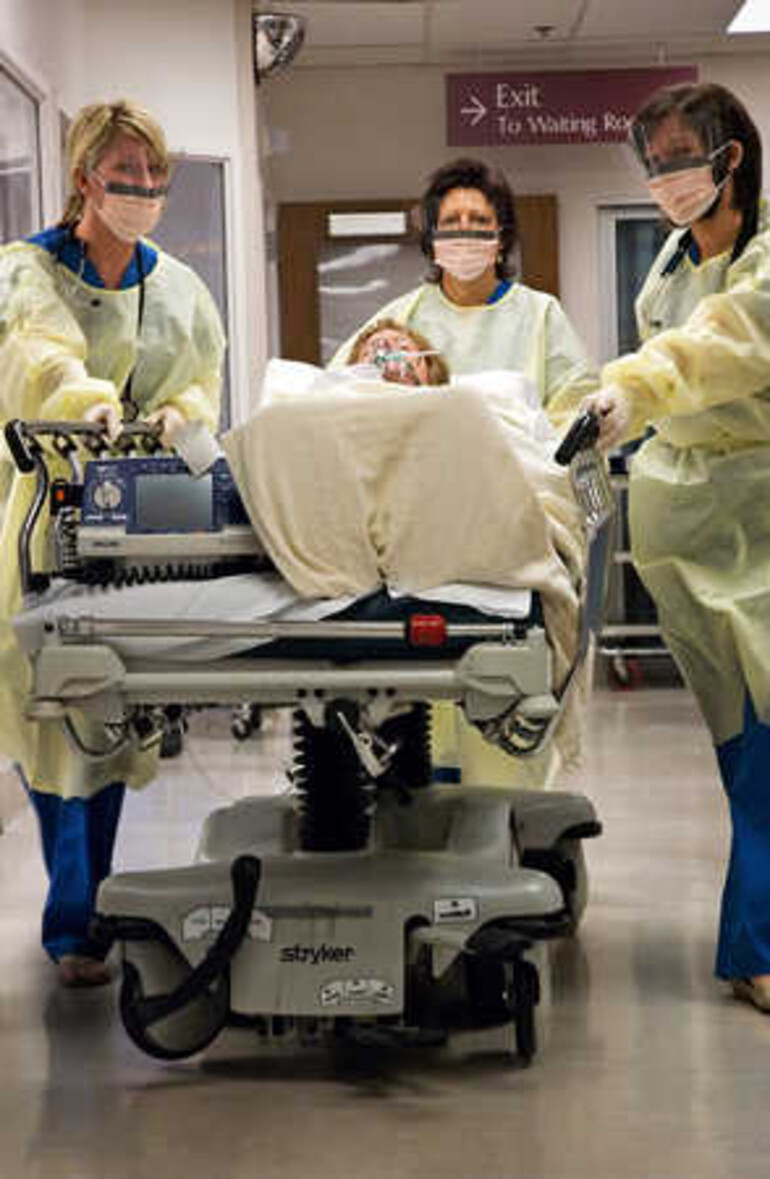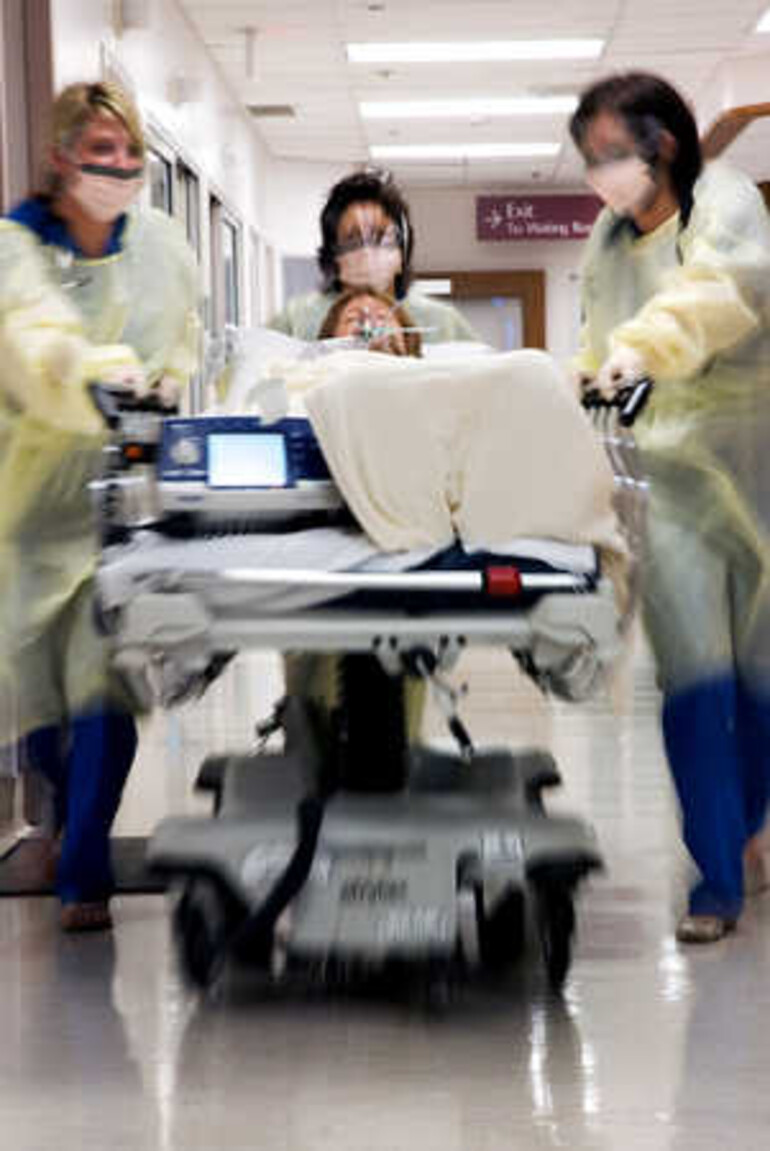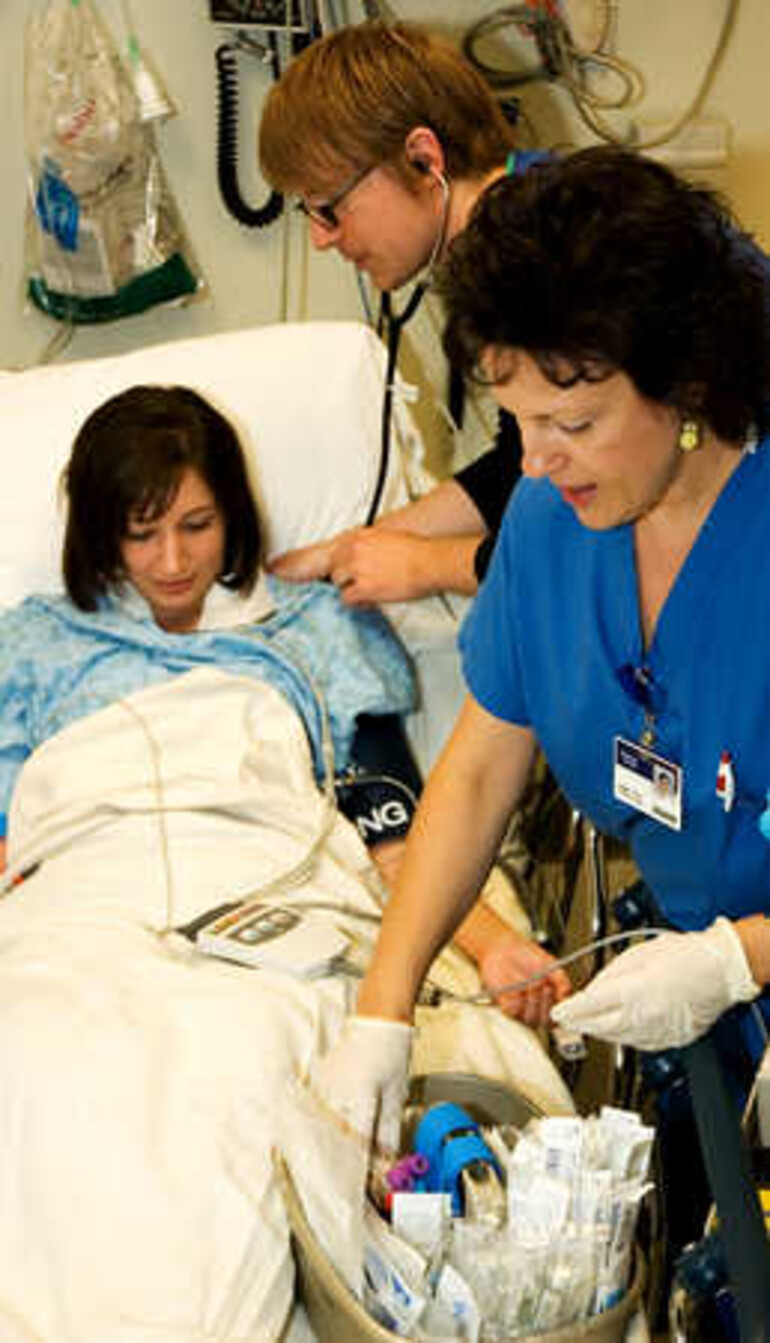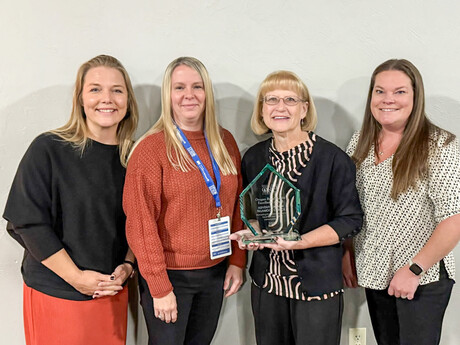Car accidents. Chest pain. Broken legs. Loss of blood. There are a myriad of reasons to visit the emergency department, but they all have one thing in common: the need for speed.
With many medical emergencies, intervention needs to be taken immediately to save the life or prevent permanent damage. At Adventist Medical Center in Portland, Ore., a relatively new technology is enabling doctors to provide care at lightning speed.
Introducing i-STAT—an advanced, diagnostic tool, the i-STAT system provides real-time lab-quality blood results within minutes to accelerate the patient care decision-making process.
"The value of i-STAT is that it allows you to get results from specific, important blood tests quickly and at the bedside," says Kelli Westcott, emergency department physician. "I can get blood test results in five minutes, rather than waiting an hour, and those results enable me to make quick diagnostic decisions."
For patients in pain, that means quicker relief. For patients with extremely life-threatening conditions, it may mean the difference between life and death.
"Some patients can go from sick to dying in 30 minutes," says Westcott, citing the intensity of potassium poisoning as an example. The i-STAT gives doctors the ability to address critical problems—lowering potassium levels in this case—and then allows additional time to make care decisions.
The first Portland-area hospital to use the technology, Adventist Medical Center has employed i-Stat since early this year and uses it frequently. Westcott estimates that at least a couple of patients per day are dramatically affected by the system's capabilities.
Additionally, it makes the doctors really happy. "Our physicians are grateful. They know what a valuable tool it is," she says of the system whose broad range of critical care tests includes cardiac markers, blood gases, chemistries and electrolytes, lactate, coagulation and hematology.
Advanced bedside testing technology is not hte only thing the emergency department has to offer. "Our patient care goals include delivering health care with the mission of the hospital in mind," Wescott states.
After attending Walla Walla College for undergraduate studies and Loma Linda University for medical school and residency training, she says, "Our California Emergency Physicians group is fortunate to work at a hospital that delivers health care for the whole person. Our department goals align with the mission of the hospital – to promote the healing ministry of Jesus. And there's no better place for that patient centered care than the Emergency Department."
"In the ER, people are anxious and afraid and fearful. It's a really stressful time," she says. "People don't wake up in the morning planning to go to the ER." It's during these vulnerable times that Dr. Wescott and the ED staff find opportunities to provide that extra compassion and care that makes Adventist Medical Center unique.
To learn more about this mission of healing at AMC, visit www.adventisthealthnw.com.












